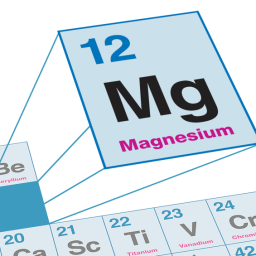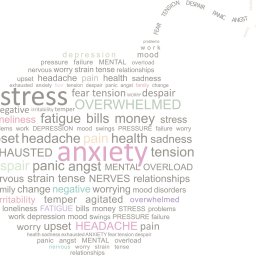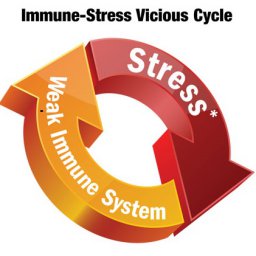Zinc and Stress Response
Zinc is an essential trace mineral naturally present in some foods and involved in numerous aspects of cellular metabolism. Zinc plays a significant role with respect to the stress response. Proper maintenance of zinc status can help to stabilize serum cortisol levels over time,1 and zinc intake has been shown to temporarily inhibit cortisol secretions.2 However, in turn, prolonged stress will deplete zinc concentrations in the blood.3 Zinc deficiency has been demonstrated to increase plasma cortisol and the pro-inflammatory mediators of interleukin-6 (IL-6), IL-1, and nitric oxide levels.4
Zinc is required for the catalytic activity of approximately 100 enzymes.5,6 Zinc plays a role in immune function,7,8 protein synthesis,9 wound healing,9 DNA synthesis,6,9 and cell division.9 Zinc supports normal growth and development during pregnancy, childhood, and adolescence,10,11 and zinc is necessary for proper sense of taste and smell.12 Given that the body has no specialized zinc storage system, regular daily zinc intake is required to maintain a steady state and to prevent deficiency.13
References
- Faure H, Peyrin JC, Richard MJ, Favier A. Parenteral supplementation with zinc in surgical patients corrects postoperative serum-zinc drop. Biol Trace Elem Res. 1991;30(1):37-45.
- Brandão-Neto J, de Mendonça BB, Shuhama T, Marchini JS, Pimenta WP, Tornero MT. Zinc acutely and temporarily inhibits adrenal cortisol secretion in humans. A preliminary report. Biol Trace Elem Res. 1990;24(1):83-9.
- Córdova A, Navas FJ. Effect of training on zinc metabolism: changes in serum and sweat zinc concentrations in sportsmen. Ann Nutr Metab. 1998;42(5):274-82.
- Chen WQ, Cheng YY, Zhao XL, Li ST, Hou Y, Hong Y. Effects of zinc on the induction of metallothionein isoforms in hippocampus in stress rats. Exp Biol Med (Maywood). 2006;231(9):1564-8.
- Sandstead HH. Understanding zinc: recent observations and interpretations. J Lab Clin Med. 1994;124(3):322-7.
- Panel on Micronutrients, et al. Dietary Reference Intakes for Vitamin A, Vitamin K, Arsenic, Boron, Chromium, Copper, Iodine, Iron, Manganese, Molybdenum, Nickel, Silicon, Vanadium, and Zinc. Washington, DC: National Academy Press; 2001.
- Solomons NW. Mild human zinc deficiency produces an imbalance between cell-mediated and humoral immunity. Nutr Rev. 1998;56(1 Pt 1):27-8.
- Rink L, Gabriel P. Zinc and the immune system. Proc Nutr Soc. 2000;59(4):541-52.
- Prasad AS. Zinc: an overview. Nutrition. 1995;11(1 Suppl):93-9.
- Simmer K, Thompson RP. Zinc in the fetus and newborn. Acta Paediatr Scand Suppl. 1985;319:158-63
- Fabris N, Mocchegiani E. Zinc, human diseases and aging. Aging (Milano) 1995;7(2):77-93.
- Heyneman CA. Zinc deficiency and taste disorders. Ann Pharmacother. 1996;30(2):186-7.
- Maret W, Sandstead HH. Zinc requirements and the risks and benefits of zinc supplementation. J Trace Elem Med Biol. 2006;20(1):3-18.





